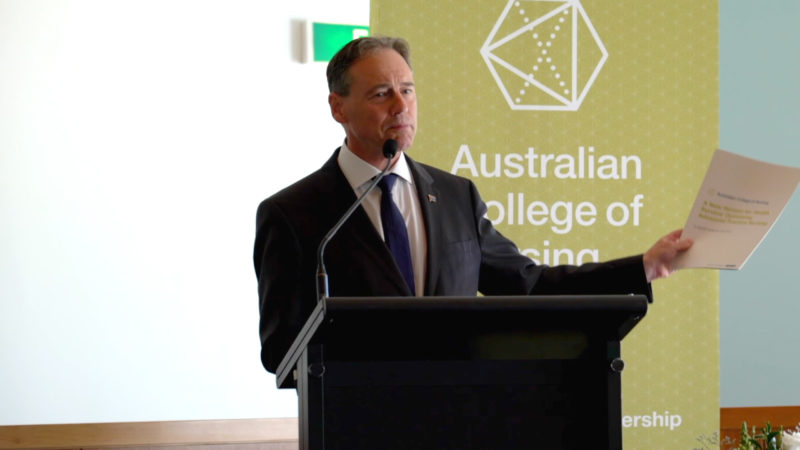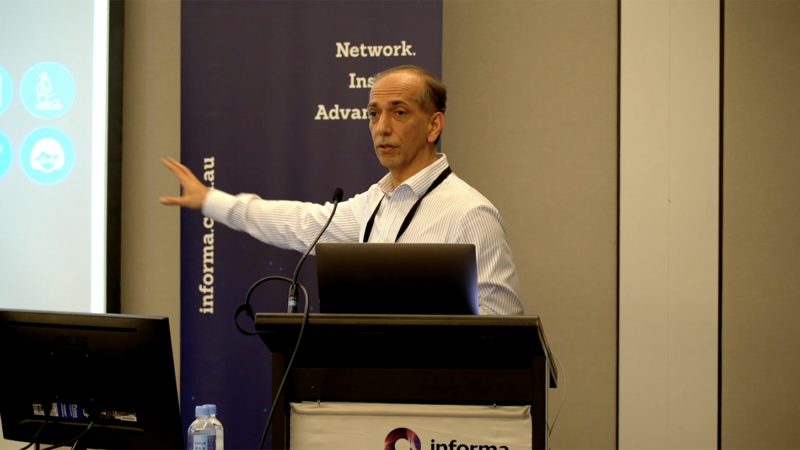AUSTRALIAN CANCER CARE NETWORK LAUNCHES TO LINK SERVICES TO POPULATION, CLINICIANS & RESEARCHERS
Aims to reduce health system disparities and tackle cancers with low survival rates
The landscape of cancer care in Australia is set to transform with the Australian Government launch in May 2024 of the Australian Comprehensive Cancer Network (ACCN) at the Innovations Showcase event, hosted by Cancer Australia in Sydney, Australia.
The ACCN is a nationally integrated system of cancer care, aimed at enhancing patient experiences and outcomes through coordinated and equitable access, by linking to comprehensive cancer services across Australia. Anchored by Comprehensive Cancer Centres (CCCs), the ACCN strives to deliver evidence-driven prevention, diagnosis, treatment, and support to all Australians affected by cancer.
Comprehensive Cancer Centres (CCCs) will serve as anchors in the ACCN, connecting various cancer control services nationwide. Through building partnerships and harnessing virtual connectivity, CCCs will collaborate with other cancer care centres, academic institutions, Aboriginal Community Controlled Health Services, regional hospitals and allied health services, among others.
While Australia has some of the world’s highest cancer survival rates, not all people experience equal outcomes. There are significant disparities in cancer outcomes for some populations, particularly affecting those in rural and remote regions, as well as Aboriginal and Torres Strait Islander communities.
The ACCN aims to address these disparities, emphasising coordinated and equitable access to comprehensive cancer services irrespective of where a person lives, and marking a significant milestone in the advancement of cancer care in Australia.
Australian Health Journal spoke with Professor Dorothy Keefe CEO, Cancer Australia on the ACCN launch and the network being a major milestone in the Australian Cancer Plan, which was launched at the end of 2023.
Participation in the ACCN is voluntary, with services committing to a set of standards focusing on comprehensive cancer care, equitable access, research excellence, data collection, workforce development, and network connectivity. Importantly, the ACCN will complement existing networks and alliances within the cancer care landscape, fostering collaboration and maximising resources.
All services and professionals involved in cancer care are encouraged to join the ACCN and contribute to this transformative initiative.
“As part of the implementation of the Australian Cancer Plan launched in November, the ACCN represents an essential stage towards achieving our goals of improving cancer outcomes and experiences for all Australians.”, says Professor Keefe.
She points out, “To achieve world class cancer outcomes for all Australians and realise the ambition of the Australian Cancer Plan, we need collective action from all sectors of health care to address issues that contribute to variation in cancer outcomes and experience.”
You Might also like
-
“Nurses can do more, should do more and now they will do more”, The Hon Minister Greg Hunt MP, Minister for Health.
Advanced Practice Nurses comprise 9% of the total nursing workforce, with 26,000 clinicians Australia wide. However although highly skilled, they are under-utilised and constrained to the full scope of practice. The Australian College of Nursing believes this needs to change. Nurse led models of care in which Advanced Practice Nurses play a significant role in service provision, must feature in the future. ACN President Professor Christine Duffield FACN states, “It’s now widely acknowledged internationally that nurses can provide a clinical and very valuable service that’s better suited to the healthcare needs of some consumer groups.”
-
Artificial Intelligence (AI) in clinical trials and clinical care
Australian Health Journal today continues a major episode release on Technology Aided Healthcare Delivery, with part 2 on Artificial Intelligence in trials and clinical care. Interviews were captured at AI, Machine Learning & Robotics in Health conference in October organised by Informa Australia.
-
Health Minister’s Awards for Nursing Trailblazers
An ACT nurse dedicated to giving people more dignity and choice in their final days was earlier this week night named the inaugural Health Minister’s Nursing Trailblazer at an awards ceremony in Sydney.
Lord Nigel Crisp, Co-Chair Nursing Now and Australian College of Nursing President, Professor Christine Duffield FACN presented the inaugural Health Minister’s Nursing Trailblazer Award to Nikki Johnston MACN, a Palliative Care Nurse Practitioner based in Canberra at Calvary Health Care’s Clare Holland House.



